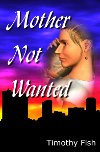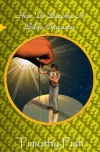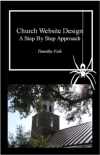
And Thy House
Extra Feature: High Res Image

History of
Cane Creek
Association
by D. F. Magruder
Christians and Banned Books - Part 4
Written By: Timothy Fish Published: 10/2/2007
This is where this issue gets difficult and somewhat controversial. Today, we are going to be looking at the issue of books that are harmful in nature as well as the issue of the attitude Christians should have toward these things. We will also look at the American Family Association (AFA) and their views concerning books and other things.
Is the Book Harmful?
There is only one reason why books are ever banned. Someone feels that the book is harmful. An Atheist may find a religious book so reprehensible that he feels that it should be banned to prevent people from being swayed to worship God. A Christian may be afraid that books indicating that there is more evidence to support evolution that what there is will cause a child to question his faith in God. A parent may feel that content of a sexual nature is in appropriate for children. If the person did not feel that harm would come from the book then there would be no need to seek censorship of the book.
Most of the time, the potential harm that might come from the book is not as clearly defined as the harm that can come from yelling fire in a crowded building. Take the book Uncle Tomís Cabin or The Adventures of Huckleberry Finn as an example. Some people have wanted these books banned because of they use a particular word that some people find offensive. The irony is that both of these books helped to highlight the plight of the oppressed and helped to shape America for the better.
It can be a difficult thing to clearly define when a book is harmful. Some of the books that are considered harmful because of the sexual nature of violent content are less sexually explicit and less violent in nature than the Bible, so the issue often comes down to one of what it is thought the writerís motivation for including the content in the book was.
The American Family Association
According to their website, American Family Association exists to motivate and equip citizens to change the culture to reflect Biblical truth. According to their philosophical statement, The American Family Association believes that God has communicated absolute truth to man through the Bible, and that all men everywhere at all times are subject to the authority of God's Word. Therefore, a culture based on Biblical truth best serves the well-being of our country, in accordance with the vision of our founding fathers. A lot of what they do is to inform their members about various things that they believe to be an affront to biblical doctrines and through the use of boycotts and other things, they seek to encourage companies and individuals to produce morally responsible products and shows.
The AFA stated that it does not support censorship because censorship is a government action, but it has been involved in seeking to have government entities (schools) remove certain books from reading lists. While I am not sure that I have read any of these books, what I have heard about some of these books indicates to me that the AFA may be correct in taking a stand against them, but that is not the issue. Given that the book is inappropriate, is it appropriate for the AFA or any other organization to ask the government to ban the book? That is what Christians must consider.
The Ramifications of Supporting Censorship
There is no way around it, book bans are censorship, even if we are talking about banning a bad book. While there is nothing wrong with taking a stand against books that are immoral, but when censorship is involved it weakens the protections we have under the First Amendment. If we, as Christians, have the right to get a book sensor because it is against our beliefs, what is to prevent non-Christians from doing the same thing with our books? The First Amendment only works because it has created a stalemate that allows us to function with freedom, but not to overstep our bounds.
Taking a Moral Stand Without Harming the First Amendment
If book banning harms the First Amendment, is there a way to take a stand for what we believe without supporting book bans? I believe there is. Suppose that instead of asking schools to ban books we ask for more choices instead. Perhaps a book shows up on a reading list and a parent determines that the book is not one he wants his child to read at his childís level of development. The parent could go to the teacher or principal and ask for the book to be removed or he could go to them and explain the situation, telling them that he feels that it would be harmful to his child to read the book and that he would like for his child to be given the opportunity to read something else instead.
The advantage to this approach is twofold. First, it is non-confrontational. Instead of telling the teacher that she is wrong to have chosen the book, you are saying that the issue is with your child, which is true. Second, it provides and easy solution. Banning a book can be a difficult thing, as people on both sides of the issue try to get their way. While providing an alternative can add work for the teacher, it may be minimal. Additionally, if enough people go to the teacher and say that they do not want their kids reading a particular book, she will start picking better books because she knows that if she doesnít she will have a bunch of parent/teacher conferences taking up her time.
Next Time
The article in this series will cover the issue of differences of opinion concerning what is morally acceptable in books and what is not.
www.timothyfish.com



